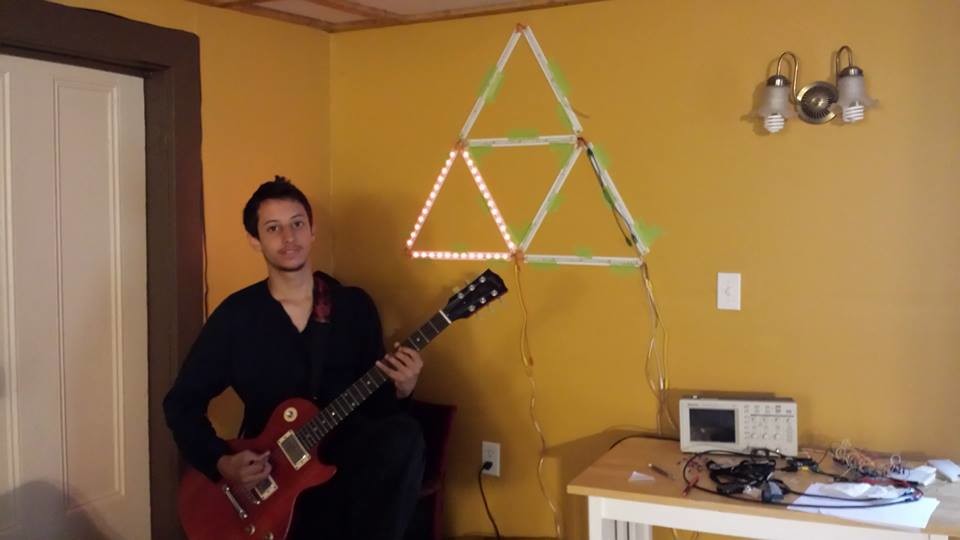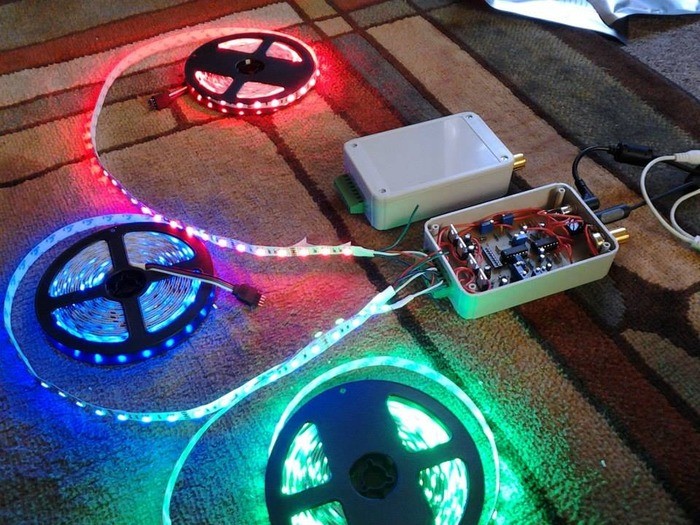Inventing a device that controls light with sound
Hewlett High alum helps to create the Lumin8 Pro
During their freshman year at SUNY Potsdam Dave Deininger, 26, of Sumter, SC met Tyler Bershad, 20, of Hewlett, met in University Physics I. By the following fall in 2013, the two were already working on school assignments and side projects, along with reestablishing SUNY Potsdam’s Physics and Engineering Club, when they decided to try a bigger project together.
That turned into creating Lumin8 Pro, a lighting controller that uses red, green and blue light emitting diodes (LEDs), lights using a one-direction current of electricity that reacts to sound. The plug-in and play device allows the user to enjoy a musically-driven lighting experience, without the need for programming from a separate computer or device, though that option exists. It has several customizable options for sound reactivity. It will make lights move to music or also provide a light display without music.
“Tyler approached me around October of 2013 with a cool little lighting circuit he wanted to play around with,” Deininger said. “He knew I had some basic electric knowledge so we tinkered around and decided we should move forward on the idea with the help of Kickstarter.”
They gave the first prototypes to close friends for review. The feedback was more customization. They built a new prototype that had a liquid-crystal display (LCD) screen and multiple options to control sound reactivity, fade patterns and continuous lighting for users.
While at Potsdam, they didn’t encounter many stumbling blocks until Bershad transferred to Clarkson University, for the 2014 spring semester to study mechanical and aeronautical engineering. Distance wasn’t a challenge as Clarkson is adjacent to Potsdam, but budgeting his time was, he said.
When the semester ended, the duo focused on the project during the summer. Josh Miller, a friend and another Potsdam student who has used the controller, said that it has very little limitations, especially with the improvements. “The only thing I consider a hold back on the product is the amount of wires that are needed,” he said. “But to ensure the best of quality from the transfer of sound to light, the wires are necessary. It is simple enough for an everyday person to be able to use this product.”
Dr. Larry Brehm, a Potsdam physics professor, describes Bershad as “an unquenchable fireball,” who is constantly creating with new ideas. “I expect that we will see a combination of entertaining things, like the programmed light display, and some things more closely related to engineering challenges he might encounter in his studies and class projects,” he said.
Bershad said that he hopes space exploration is in his future. “After Clarkson, I hope to work for SpaceX,” he said. “I dream that one day I will take part in building the rocket that puts a man or woman on Mars.” SpaceX is a space transport services company headquartered in California.
To learn more about Lumin8 Pro and the Kickstarter project, visit https://www.kickstarter.com/projects/ledpulse/lumin8-pro.

 54.0°,
A Few Clouds
54.0°,
A Few Clouds 







